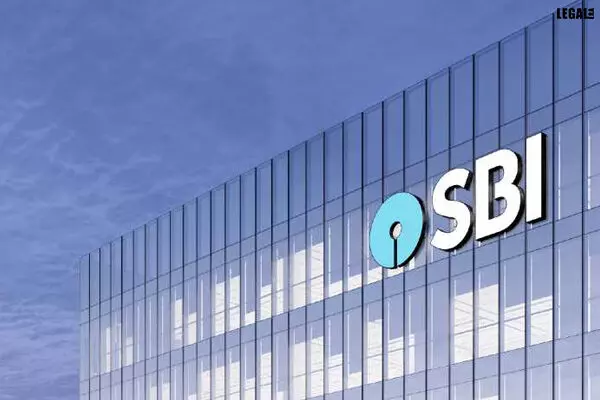- Home
- News
- Articles+
- Aerospace
- Artificial Intelligence
- Agriculture
- Alternate Dispute Resolution
- Arbitration & Mediation
- Banking and Finance
- Bankruptcy
- Book Review
- Bribery & Corruption
- Commercial Litigation
- Competition Law
- Conference Reports
- Consumer Products
- Contract
- Corporate Governance
- Corporate Law
- Covid-19
- Cryptocurrency
- Cybersecurity
- Data Protection
- Defence
- Digital Economy
- E-commerce
- Employment Law
- Energy and Natural Resources
- Entertainment and Sports Law
- Environmental Law
- Environmental, Social, and Governance
- Foreign Direct Investment
- Food and Beverage
- Gaming
- Health Care
- IBC Diaries
- In Focus
- Inclusion & Diversity
- Insurance Law
- Intellectual Property
- International Law
- IP & Tech Era
- Know the Law
- Labour Laws
- Law & Policy and Regulation
- Litigation
- Litigation Funding
- Manufacturing
- Mergers & Acquisitions
- NFTs
- Privacy
- Private Equity
- Project Finance
- Real Estate
- Risk and Compliance
- Student Corner
- Take On Board
- Tax
- Technology Media and Telecom
- Tributes
- Viewpoint
- Zoom In
- Law Firms
- In-House
- Rankings
- E-Magazine
- Legal Era TV
- Events
- Middle East
- Africa
- News
- Articles
- Aerospace
- Artificial Intelligence
- Agriculture
- Alternate Dispute Resolution
- Arbitration & Mediation
- Banking and Finance
- Bankruptcy
- Book Review
- Bribery & Corruption
- Commercial Litigation
- Competition Law
- Conference Reports
- Consumer Products
- Contract
- Corporate Governance
- Corporate Law
- Covid-19
- Cryptocurrency
- Cybersecurity
- Data Protection
- Defence
- Digital Economy
- E-commerce
- Employment Law
- Energy and Natural Resources
- Entertainment and Sports Law
- Environmental Law
- Environmental, Social, and Governance
- Foreign Direct Investment
- Food and Beverage
- Gaming
- Health Care
- IBC Diaries
- In Focus
- Inclusion & Diversity
- Insurance Law
- Intellectual Property
- International Law
- IP & Tech Era
- Know the Law
- Labour Laws
- Law & Policy and Regulation
- Litigation
- Litigation Funding
- Manufacturing
- Mergers & Acquisitions
- NFTs
- Privacy
- Private Equity
- Project Finance
- Real Estate
- Risk and Compliance
- Student Corner
- Take On Board
- Tax
- Technology Media and Telecom
- Tributes
- Viewpoint
- Zoom In
- Law Firms
- In-House
- Rankings
- E-Magazine
- Legal Era TV
- Events
- Middle East
- Africa
NCLT Kolkata: State Bank of India Files Insolvency Plea Against Simplex Infrastructure

NCLT Kolkata: State Bank of India Files Insolvency Plea Against Simplex Infrastructure
The State Bank of India (SBI) has filed an insolvency application under Section 7 of the Insolvency and Bankruptcy Code, 2016 against Kolkata-based engineering, procurement, and construction (EPC) company Simplex Infrastructures in the National Company Law Tribunal (NCLT), Kolkata bench.
The matter is being heard by the division member bench of Justice Rohit Kapoor (Judicial Member) and Balraj Joshi (Technical Member).
The Company had taken loan facilities led by Punjab National Bank (PNB) a total of Rs. 9,600 crore and is one of the largest accounts taken up by the NCLT.
PNB is the lead creditor with outstanding dues of Rs. 1,600 crore after the consolidation of debt from the erstwhile United Bank of India (UBI) and Oriental Bank of Commerce (OBC) after they were acquired by PNB in 2020.
After PNB, SBI is the second largest lender with dues amounting to Rs. 1,500 crore, followed by Indian Bank with dues of Rs. 1,400 crore.
Established in 1924, Simplex has built some of the landmark bridges and is involved in urban transport projects. However, delays in some government payments and the cancellation of large orders led to tightening liquidity for the company, which resulted in banks classifying these loans as non-performing assets (NPAs) in 2019.
The matter was listed for hearing on 15 February, 2023 but was postponed to 17, March.
According to the company’s website, it has completed over 2,600 projects in different parts of the country and types of construction.
Company results show that Simplex has been making losses for more than a year as income has been falling and expenses remain elevated. In the latest results for the quarter that ended December 2022, the company reported a loss of Rs. 137 crore.
Infrastructure businesses depend a lot on bank guarantees and working capital limits, which get stretched due to delays in payments from government and state agencies. Some Simplex projects were troubled due to the delay in payments, forcing the company to invoke bank guarantees, and impacting its credit ratings.



